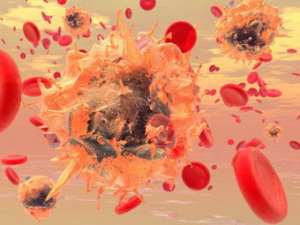

MedFriendly®


Abeyance
Abeyance is a state of temporary ending, inactivating,
suspending, ceasing, or interrupting a function. For
example, if someone is choking, breathing can be in
abeyance until it is restored by dislodging the object
obstructing air flow. More commonly, abeyance is used
to refer to remission of cancer (e.g., the cancer is in
abeyance). It is sometimes also used to refer to
remission of multiple sclerosis prior to another relapse
FEATURED BOOK: Overcoming MS: Evidence
When cancer cells die, the
disease can go into abeyance.
Multiple sclerosis is a condition in which multiple areas of abnormal patches (known as
plaques) develop in the brain and/or spinal cord (depending on the stage of the illness).
Treatments such as medications, surgery, and lifestyle changes can help put various
other medical conditions in abeyance. In daily life, many people try to eat healthy and
take a multivitamin with the hopes of temporarily suspending an underlying disease
process from manifesting sooner.
Psychological counseling can help teach a person how to put certain negative emotional
states into abeyance such as depression, anxiety, and anger. It is when medical or
mental health conditions cannot be held in abeyance that disease states can progress,
worsen quality of life, and can lead to death depending on the particular condition.
Abeyance comes from the Latin word "batare" meaning "to yawn."
"Where Medical Information is Easy to Understand"™















